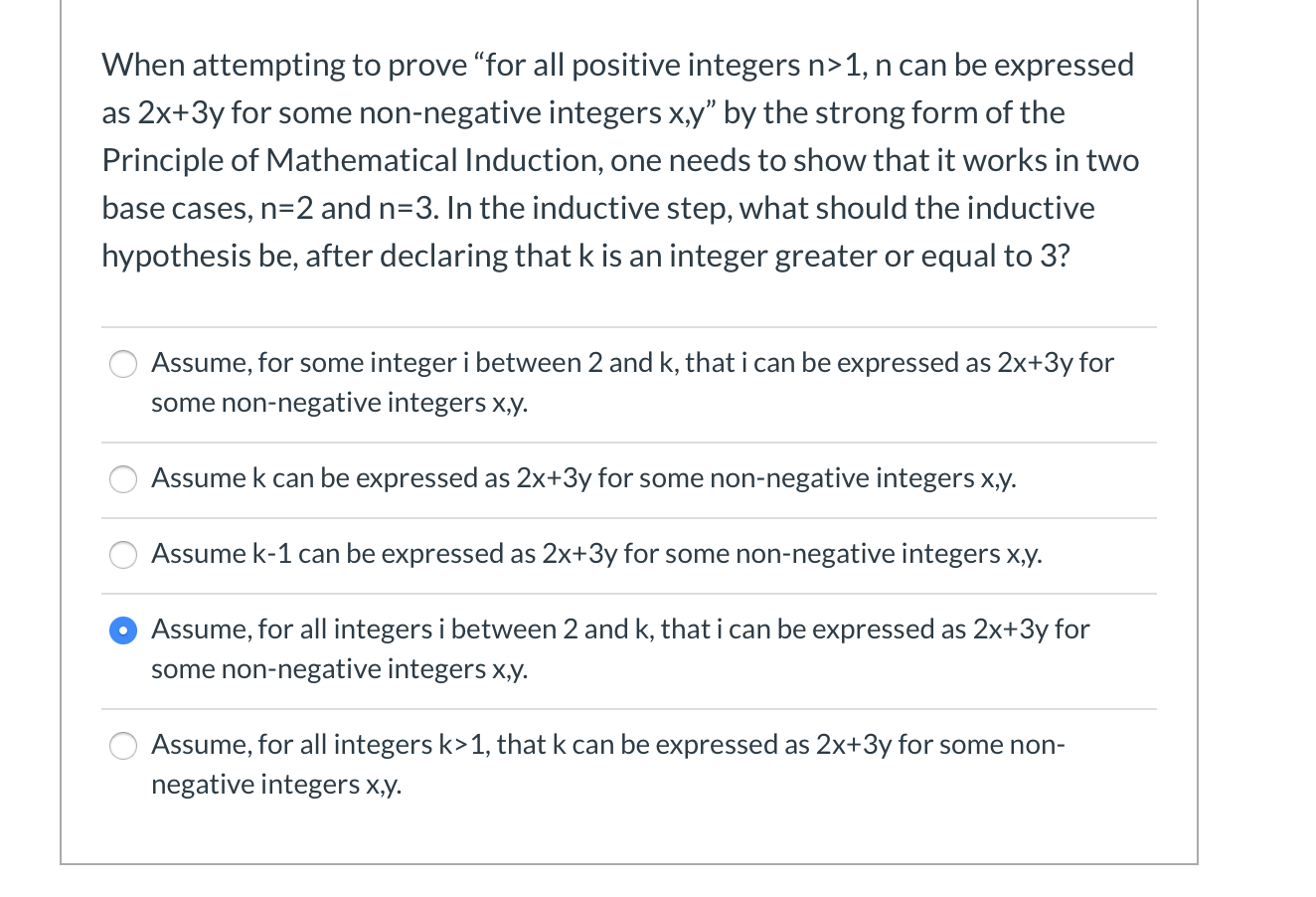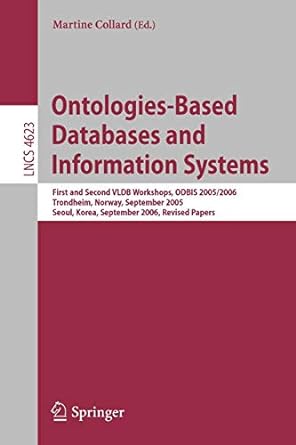Answered step by step
Verified Expert Solution
Question
1 Approved Answer
When attempting to prove for all positive integers n>1, n can be expressed as 2x+3y for some non-negative integers x,y by the strong form of

When attempting to prove for all positive integers n>1, n can be expressed as 2x+3y for some non-negative integers x,y by the strong form of the Principle of Mathematical Induction, one needs to show that it works in two base cases, n=2 and n=3. In the inductive step, what should the inductive hypothesis be, after declaring that k is an integer greater or equal to 3? o Assume, for some integer i between 2 and k, that i can be expressed as 2x+3y for some non-negative integers x,y. o Assume k can be expressed as 2x+3y for some non-negative integers x,y. O Assume k-1 can be expressed as 2x+3y for some non-negative integers x,y. Assume, for all integers i between 2 and k, that i can be expressed as 2x+3y for some non-negative integers x,y. O Assume, for all integers k>1, that k can be expressed as 2x+3y for some non- negative integers x,y
Step by Step Solution
There are 3 Steps involved in it
Step: 1

Get Instant Access to Expert-Tailored Solutions
See step-by-step solutions with expert insights and AI powered tools for academic success
Step: 2

Step: 3

Ace Your Homework with AI
Get the answers you need in no time with our AI-driven, step-by-step assistance
Get Started


